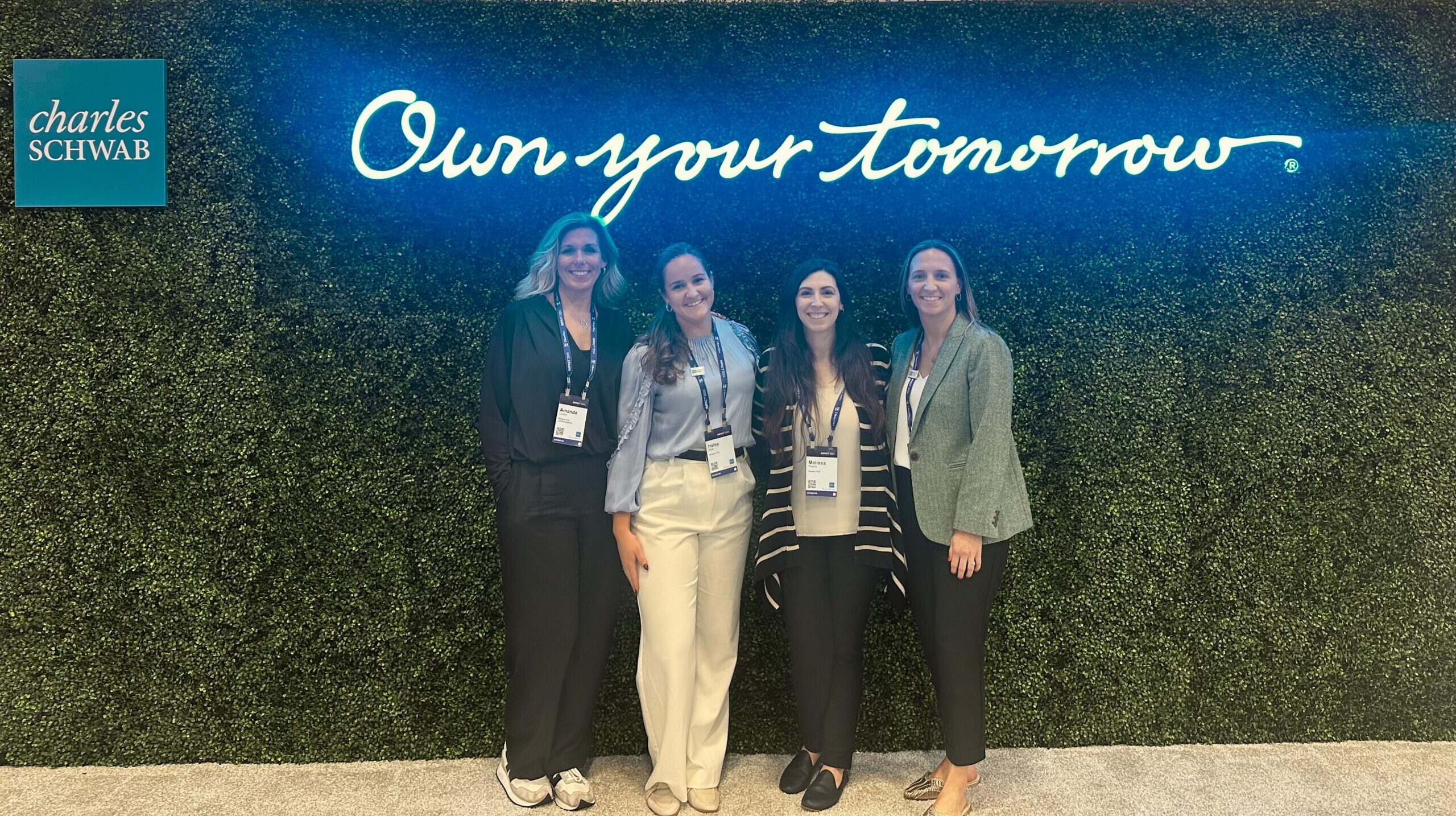This year’s Schwab IMPACT conference was all about the client relationship.
Financial services leave no stone unturned as they optimize every aspect of their businesses for long-term growth and success. Three standout sessions—by Cam Marston, Brian Perry, and Daniel Pink—make the case that a strong and empathetic client experience is an indivisible part of that growth strategy. Their insights dovetailed neatly with our own marketing and PR perspective.
Cam Marston: Managing Your Client’s Top Fears
Cam Marston’s session tackled one of the most human elements of financial advising: fear. Regardless of age, financial standing, or family situation, clients often grapple with worries about their financial futures.
Younger clients, as one might expect, feel a lot of anxiety about the future. These clients are less interested in hearing about historical market trends or traditional investing principles and more focused on what lies ahead. On the other hand, older clients are often concerned with legacy—how they will be remembered and whether they’ve provided adequately for their families.
Marston’s takeaway was clear: by focusing on fears, rather than age or other demographics, advisors can forge deeper, more fruitful relationships that stand the test of time.
Brian Perry: Driving Organic Growth with a Multi-Channel Marketing Engine
Brian Perry of Pure Financial Advisors shared a blueprint for achieving significant organic growth without relying on mergers, acquisitions, or custodial referral channels. His firm, which manages over $7 billion in assets, has built a robust multi-channel marketing engine capable of generating tens of thousands of leads annually.
Perry broke the process into three key steps:
1. Lead Generation: Using tools like educational webinars, podcasts, and articles to attract and engage prospects.
2. Advisor Meetings: Ensuring a streamlined process to connect qualified leads with advisors.
3. Prospect Conversion: Training advisors with repeatable processes to successfully turn prospects into clients.
Consistency counts, Perry said. Whether through podcasts, YouTube videos, or in-person events, firms must maintain a steady drip of outreach to nurture relationships. For firms looking to scale, the lesson is clear: investing in marketing processes pays dividends.
Perry also fielded questions from an engaged audience of advisors eager to learn from Pure’s overall approach and successful lead conversion. One advisor noted their commitment to education and the opportunities it has turned over, asking Perry for his opinion on whether it was worth doubling down on that channel or expanding. We wholeheartedly agreed with Perry’s response of the importance of diversifying your approach as you never know when a black swan event could dismantle your strategy (global pandemic anyone?).
Daniel Pink: The Power of Regret
In one of the most thought-provoking sessions, New York Times bestselling author Daniel Pink explored the often-misunderstood emotion of regret and its impact on personal and professional decision-making. Pink outlined four common types of regret:
Foundation Regrets: Mistakes made early in life that have long-term consequences, such as financial missteps.
Boldness Regrets: The chances not taken—whether in career, relationships, or other areas.
Moral Regrets: Choosing the wrong path when faced with ethical dilemmas.
Connection Regrets: Missed opportunities to maintain or repair important relationships.
Pink dismissed the “no regrets” mantra and encouraged the audience of advisors to embrace regret. Pink emphasized that understanding regret can help clarify what we value most, making it a powerful tool for fostering client connections. Advisors can use these insights to ask better questions, understand their clients’ priorities, and build stronger relationships.
Takeaways for Advisors and Firms
The sessions at Schwab IMPACT reinforced that successful communication is about more than delivering information—it’s about listening, understanding, and adapting. From addressing client fears to creating marketing processes that drive growth and using regret to uncover priorities, the lessons were both practical and profound.
As PR and marketing professionals, we see opportunities to integrate these ideas into our strategies, helping firms connect with clients on a deeper level. Whether it’s refining messaging, creating tailored educational content, or fostering authentic conversations, the focus should always remain on what matters most to clients.
